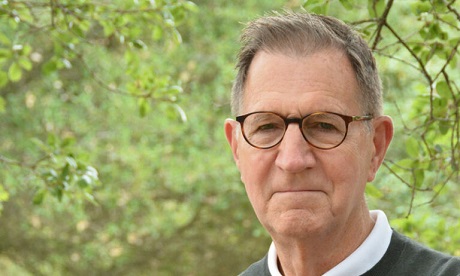Though I have butched up pretty good in the ensuing decades, I was a somewhat soft boy at my Jesuit high school. It was no place for sissies.
Being gay
After a difficult freshman year, I begged my parents to transfer me to the local public school. That request, to my father, was ridiculous.
Little did he know how ashamed and deeply isolated I felt inside, while a student in this revered high school.
As Eros bloomed inside, I lived in fear that I would be exposed, found out.
I lived in dread that I would be discovered as this despised thing whose name I did not know, but whose negative associations I could see and feel all around me.
All was not bad. I had some wonderful teachers: Jesuits and lay alike.
My senior English teacher, a layman and a coach, particularly affected me: he taught us to write from our feelings and he showed us respect and affirmed our dignity. A man for others. And I made vital life-long friendships.
Paradoxically, my nascent faith deepened as it also grew pale. I encountered Jesus in a new way.
And I was introduced to rudimentary Ignatian wisdom, that incomparable combination of a psychologically grounded spirituality, honoring intuition and insight, a contemplative posture that fostered religious imagination and presence.
Targeted and isolated
But my prep school was a difficult place for an—albeit deeply closeted—gay boy.
Back then, it strongly exemplified the dominant culture’s values, values anathema to the development of whole persons, values particularly perhaps unwittingly suited to molding boys into narrow and constricted men.
So much of that—thankfully—has changed, but of course, remnants (some most durable, both overt and covert) remain.
Let two incidents suffice.
At our homecoming football game at the Municipal Stadium my freshman year, I was sitting with a friend when two guys from my homeroom approached.
One said: This is the one and proceeded to cuff my collar and pull me up out of the bleacher.
The other sucker-punched me, then threw me back into my seat and walked away, scornfully laughing.
They imparted the knowledge I dreaded: We’re onto you. I lived with that daily fear, believing that somehow, I deserved what I got for being the one, the one they were all onto.
All our culture’s words and notions and judgments came home to roost in … a young gay boy that the world, let alone his parents, could not know.
Alone and afraid
In sophomore year, I fell-in-swoon.
I fell in swoon like nigh all high school boys do, though unlike my friends, I was not falling for a girl. I was falling for a boy, one who sat a row away from me. It felt overwhelming.
I was excited and alarmed and scared. There was no one with whom to speak, no one with whom to share these feelings or even acknowledge that the feelings existed.
I felt then the beginnings of what I would feel profoundly until my 29th year: I was alone in this. In the most riveting sense.
And alone I believed I would always be, with no language, no community, no symbol nor myth, no conversation, no dialogue, no hope.
What did adhere in high school and in the world in which I lived were the messages the dominant culture proffers.
During puberty’s final onslaught, I came to believe I was beyond the pale of grace. I came to know I was unacceptable in the eyes of the world.
All our culture’s words and notions and judgments came home to roost in me, a 16-year-old boy, a young gay boy that the world, let alone his parents, could not know.
Lost from God
Finally, and primarily, I grew to believe that I was unacceptable as a human being in the eyes of God.
In the truest sense, I did not know why, for this thing that had visited me, not of my making nor at my initiative.
The more I prayed to be changed, which was the heart and content of my prayer (so deeply aware that I had not chosen this, but come to believe it was visited upon me because of my sinfulness), I regarded my not changing as God’s further judgment on me.
I thought God found that my prayer, and my life, were insincere, beyond the pale of believability.
I was not available to the strands of grace everyone else seemed to somehow merit.
The One I called God, and my dear companion Jesus, previously the source of such great succor in my life, were taken away. Or they left. Or I could not find them.
They somehow necessarily abandoned me to despair because this person I had become could manage no change, could not desist either my feelings nor my desires, no matter how hard I fought them or prayed to be delivered from them.
I was alone.
This is the terror for many queer boys and girls: We are alone. Continue reading
- William D. Glenn, a former Jesuit has a Master of Divinity degree from the Pacific School of Religion, where he was awarded the Paul Wesley Yinger Award for Distinguished Preaching. He also has a Masters in Clinical Psychology from the University of San Francisco.
